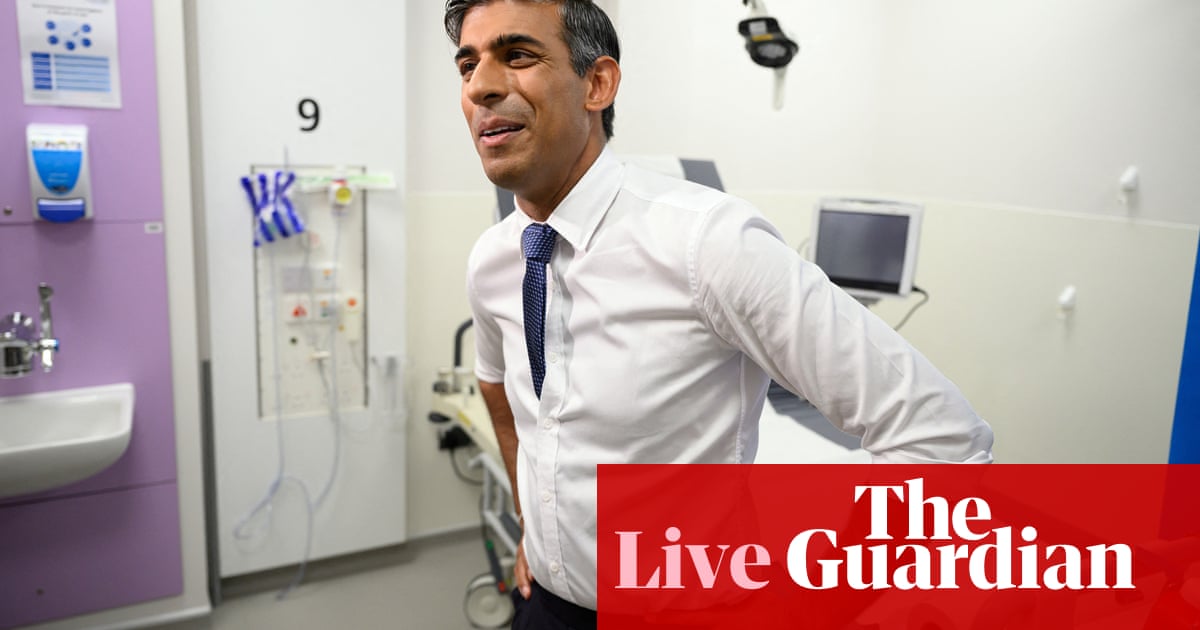
All four holders of the “Great Offices of State” have failed to support a woman’s right to access safe abortions in England over the past seven years, the Guardian can reveal.
Abortion providers have warned that access to safe abortions is at risk and accused the prime minister, Rishi Sunak, of taking a “anti-abortion stance”, after the minister for women, Maria Caulfield, was given responsibility for abortion services as part of her second role as a health minister.
After the appointment of Caulfield – who opposed legalising abortion in Northern Ireland and claimed protesters outside clinics may simply want to “comfort” women – Labour analysis of the voting records showed the prime minister, chancellor, home secretary and foreign secretary have abstained or voted against all English abortion legislation since 2015.
Key members of the new cabinet – including the culture secretary, environment secretary, and Welsh secretary – have consistently voted against abortion rights in England, while this year more than a third of the cabinet voted against early medical abortion at home to be made permanent and more than a quarter voted against buffer zones for abortion clinics.
The chancellor, Jeremy Hunt, has called for the time limit on abortions to be cut from 24 weeks to 12 weeks – breaking the whip in 2008 to vote for an amendment to halve the limit. He has also voted against or abstained in all votes relating to expanding abortion provision as an MP, except in the case of Northern Ireland.
Katherine O’Brien, the spokesperson for the British Pregnancy Advisory Service (Bpas), said giving Caulfield responsibility for abortion was “more than a disregard for women’s health, it feels like a slap in the face”.
She said that as the minister for maternity services, Caulfield would have the ability to block the opening of new abortion clinics, prevent the re-licensing of clinics and even close clinics down.
“Our fear is, to be frank, that access to abortion is at risk,” she said. “The prime minister may have abstained in abortion votes, but by giving Caulfield responsibility for abortion services he has taken an anti-abortion stance.”
In an email seen by the Guardian, the Department of Health confirmed that as minister for mental health and women’s health strategy, Caulfield had responsibility for abortion services, which sit under maternity services. Caulfield is a former member of the all-party parliamentary pro-life group and in 2018 called for a debate on reducing the 24-week time limit for most abortions, describing the English law on abortion as “one of the most liberal” in the world.
O’Brien said previously that responsibility for abortion services sat with the minister for public health, most recently Maggie Throup, calling it an “active decision” to give Caulfield the role.
The shadow women and equalities secretary, Anneliese Dodds, called on Sunak to spell out his commitment to women’s right to safe and legal abortion, in light of Caulfield’s appointment and the voting analysis carried out by Labour.
Sunak has abstained on all votes relating to abortion since becoming an MP, but voted in favour of giving the Northern Ireland secretary new powers to impose the commissioning of abortion services in Northern Ireland.
Since becoming an MP in 2015, the home secretary, Suella Braverman, has abstained or voted against expanding abortion provision – with the exception of votes on services in Northern Ireland – and this year voted against buffer zones and early medical abortions at home being made permanent. The foreign secretary, James Cleverly, has abstained on every vote regarding abortion, except in Northern Ireland, since becoming an MP.
“Women across the country will be really worried about the voting records of senior members of this government and what that means for their right to access safe and legal abortion,” said Dodds. Labour has supported abortion buffer zones and would “always support women and their right to choose”, she added.
Harriet Wistrich, the director of the Centre for Women’s Justice, said she was “deeply concerned” that the appointment of Caulfield as minister for women and health with responsibility for abortion, coupled with the voting records of key members of the cabinet, represented “a threat to women’s reproductive rights”.
The Department of Health and Social Care said the government took a neutral stance on abortion, and that it was for parliament to decide the circumstances under which abortions could take place.












